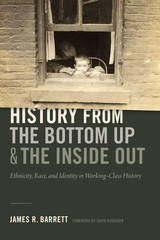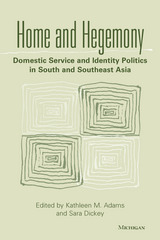7 start with H start with H

From Acadians to Zoroastrians-Asians, American Indians, East Indians, West Indians, Europeans, Latin Americans, Afro-Americans, and Mexican Americans—the Harvard Encyclopedia of American Ethnic Groups provides the first comprehensive and systematic review of the many peoples of this country. It should excite all Americans about their nation.
Informative and entertaining, this volume is an indispensable reference work for home, library and office. It establishes a foundation for the burgeoning field of ethnic studies; it will satisfy and stimulate the popular interest in ancestry and heritage. It is a guide to the history, culture, and distinctive characteristics of the more than 100 ethnic groups who live in the United States.
Each ethnic group is described in detail. The origins, history and present situation of the familiar as well as the virtually unknown are presented succinctly and objectively. Not only the immigrants and refugees who came voluntarily but also those already in the New World when the first Europeans arrived, those whose ancestors came involuntarily as slaves, and those who became part of the American population as a result of conquest or purchase and subsequent annexation figure in these pages. The English and the Estonians, the Germans and the Gypsies, the Swedes and the Serbs are interestingly juxtaposed. Even entries about relatively well-known groups offer new material and fresh interpretations. The articles on less well-known groups are the product of intensive research in primary sources; many provide the first scholarly discussion to appear in English. One hundred and twenty American and European contributors have been involved in this effort, writing either on individual groups or on broad themes relating to many.
The group entries are at the heart of the book, but it contains, in addition, a series of thematic essays that illuminate the key facets of ethnicity. Some of these are comparative; some philosophical; some historical; others focus on current policy issues or relate ethnicity to major subjects such as education, religion, and literature. American identity and Americanization, immigration policy and experience, and prejudice and discrimination in U.S. history are discussed at length. Several essays probe the complex interplay between assimilation and pluralism—perhaps the central theme in American history—and the complications of race and religion.
Numerous cross-references and brief identifications will aid the reader with unfamiliar terms and alternative group names. Eighty-seven maps, especially commissioned, show where different groups have originated. Annotated bibliographies contain suggestions for further reading and research. Appendix I, on methods of estimating the size of groups, leads the reader through a maze of conflicting statistics. Appendix II reproduces, in facsimile, hard-to-locate census and immigration materials, beginning with the first published report on the nativities of the population in 1850.

Even though race influenced how Americans envisioned, represented, and shaped the American West, discussions of its history devalue the experiences of racial and ethnic minorities. In this lyrical history of marginalized peoples in Idaho, Robert T. Hayashi views the West from a different perspective by detailing the ways in which they shaped the western landscape and its meaning.
As an easterner, researcher, angler, and third-generation Japanese American traveling across the contemporary Idaho landscape—where his grandfather died during internment during World War II—Hayashi reconstructs a landscape that lured emigrants of all races at the same time its ruling forces were developing cultured processes that excluded nonwhites. Throughout each convincing and compelling chapter, he searches for the stories of dispossessed minorities as patiently as he searches for trout.
Using a wide range of materials that include memoirs, oral interviews, poetry, legal cases, letters, government documents, and even road signs, Hayashi illustrates how Thomas Jefferson’s vision of an agrarian, all-white, and democratic West affected the Gem State’s Nez Perce, Chinese, Shoshone, Mormon, and particularly Japanese residents. Starting at the site of the Corps of Discovery’s journey into Idaho, he details the ideological, aesthetic, and material manifestations of these intertwined notions of race and place. As he ?y-?shes Idaho’s fabled rivers and visits its historical sites and museums, Hayashi reads the contemporary landscape in light of this evolution.


Democracy—its aspirations, its dangers—is what, most fundamentally, our Constitution is about. The question, Richard Parker argues in this powerful book, is how to imagine our democracy. Provocative in style and substance, this manifesto challenges orthodoxies of constitutional legal studies, particularly the idea that constitutionalism and populist democracy stand opposed. Parker presents a populist argument. He contends that the mission of constitutional law should be to promote, not limit, the expression of ordinary political energy—thus to extend, rather than constrain, majority rule.
At the root of the matter, Parker finds a question of “sensibility”—assumptions and attitudes about the political energy of ordinary people. He approaches this sensibility in a novel way, through a work of fiction about politics, Thomas Mann’s Mario and the Magician. Offering two “takes” on the story, Parker shows how it evokes—and elucidates—our deepest, most problematic attitudes about popular political energy in our own democracy. He goes on to elaborate these attitudes within our practice of constitutional argument. This is a book about the people, and for the people, a reimagination of constitutional law’s populist potential. It will disorient—then reorient—the thinking of everyone who is concerned about democracy and the Constitution.


This pathbreaking collection builds on recent examinations of identity in the postcolonial states of South and Southeast Asia by investigating the ways in which domestic workers and their employers come to know and depict one another and themselves through their interactions inside and outside of the home. This setting provides a particularly apt arena for examining the daily negotiations of power and hegemony.
Contributors to the volume, all anthropologists, provide rich ethnographic analyses that avoid a narrow focus on either workers or employers. Rather, they examine systems of power through specific topics that range from the notion of "nurture for sale" to the roles of morality and humor in the negotiation of hierarchy and the dilemmas faced by foreign employers who find themselves in life-and-death dependence on their servants.
With its provocative theoretical and ethnographic contributions to current debates, this collection will be of interest to scholars in Asian studies, women's studies, anthropology, sociology, and cultural studies.
Kathleen M. Adams is Associate Professor of Anthropology, Loyola University of Chicago. Sara Dickey is Associate Professor of Anthropology, Bowdoin College.

READERS
Browse our collection.
PUBLISHERS
See BiblioVault's publisher services.
STUDENT SERVICES
Files for college accessibility offices.
UChicago Accessibility Resources
home | accessibility | search | about | contact us
BiblioVault ® 2001 - 2024
The University of Chicago Press









